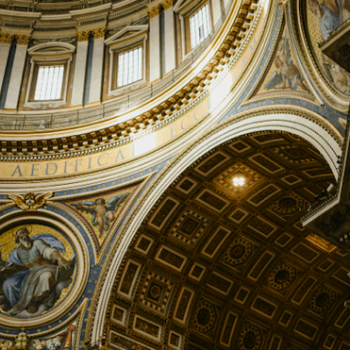How do you think the Church might be able to recover a focus on and yearning for the eschatological realities of the world to come, particularly in light of our modern obsessions with progress in this life?
The Church is not going to be able to do this if it accepts the materialist worldview with only God as the exception. People are smart enough to realize that if we are strictly bodies, and our bodies die, then that's the end—no matter if some replica of us is later cloned or refashioned. But the modern obsession with progress is not a major concern. After all, one can progress only so far before the reality of one's coming death makes clear that this-worldly progress holds out no real future, except in the sense that our eternal future is built upon our embodied love for others. Pantheism and earth-worship have to deal with the fact that the sun will die and that, apparently, the cosmos will spread out forever, growing colder and colder. The point is that neither for the individual nor for the human race is "progress" a real option. And anyway, we wouldn't want it if it were, because we want to love and be loved. Love is the only option, a love that isn't eternally cut off. If God is not there for me, then everything ultimately becomes boring and empty. Let's seek God! The portrait of eternal life that Christianity offers—a non-temporal, embodied participation in triune Love through Jesus Christ—simply can't be beat.
In what ways might a renewed interest in Jesus' death and resurrection provide comfort for believers when those they love die? How might it help each of us when we face our own deaths?
Jesus conquered death—that just has to be good news!




